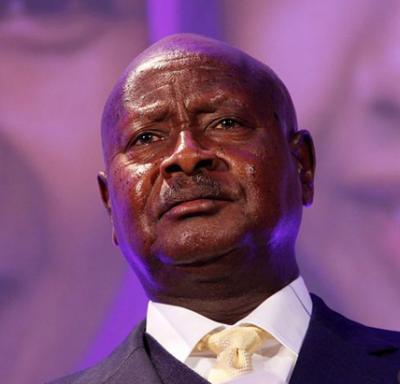Ugandan top court OKs cruel, flawed Anti-Homosexuality Act
Colin Stewart is a 45-year journalism veteran living in Southern…
Justices declare it can remain in force despite violating rights to health, privacy and religion
Uganda’s Constitutional Court ruled today that the nation’s Anti-Homosexuality Act 2023 violates citizens’ “right to health, privacy and freedom of religion” but did not block or suspend it.

Uganda’s Constitutional Court rejects petition against anti-gay law
Anti-Homosexuality Act 2023 imposes penalties of up to life in prison for consensual same-sex relations and possible death in ‘aggravated homosexuality’ cases.
Uganda’s Constitutional Court has rejected a petition seeking to annul an anti-gay law that has been roundly condemned internationally as one of the toughest in the world.
The court found [today] that some sections of the law violated the right to health and it was “inconsistent with right to health, privacy and freedom of religion” but did not block or suspend the law.
“We decline to nullify the Anti-Homosexuality Act 2023 in its entirety, neither will we grant a permanent injunction against its enforcement,” Justice Richard Buteera, Uganda’s deputy chief justice and head of the court, said in the landmark ruling.

According to Ugandan television station NTV, the five-member court reached a unanimous decision to reject the petition against the law, which enjoys broad popular support in the country.
The legislation was adopted in May, triggering outrage among the LGBTQ community, rights campaigners, the United Nations and Western nations.
The Anti-Homosexuality Act 2023 imposes penalties of up to life in prison for consensual same-sex relations and contains provisions that make “aggravated homosexuality” an offence punishable by death.

President Yoweri Museveni’s government has struck a defiant tone with officials accusing the West of trying to pressure Africa into accepting homosexuality.
The Constitutional Court in Kampala began hearing the case in December.
The petition was brought by two law professors from Makerere University in Kampala, legislators from the ruling party and human rights activists.
They said the law violates fundamental rights guaranteed by Uganda’s Constitution, including freedom from discrimination and the right to privacy.
The petitioners also said it contravenes Uganda’s commitments under international human rights law, including the UN Convention against Torture.
West trying to ‘coerce us’
A 20-year-old man became the first Ugandan to be charged with “aggravated homosexuality” under the law in August.
He was accused of “unlawful sexual intercourse with … [a] male adult aged 41”, an offence punishable by death.
Uganda, a conservative and predominantly Christian country in East Africa, is well known for its intolerance of homosexuality.
It has resisted pressure from rights organisations, the UN and foreign governments to repeal the law.
In August, the World Bank announced that it was suspending new loans to Uganda over the law because it “fundamentally contradicts” the values espoused by the international institution.
In December, Ugandan Minister of State for Foreign Affairs Henry Okello Oryem accused the West of seeking “to coerce us into accepting same-sex relationships using aid and loans”.
In 2014, international donors had slashed aid to Uganda after Museveni approved a bill that sought to impose life sentences for homosexual relations, which was later overturned.





Well, when you’re a bunch of stupid backward idiots, yhou must show it, right? Otherwise you could be mistaken for having brain-cell development in your skull, and that’s something that we cann’t have, can we?
Imagine, members of the Constitutional Court having brain-cell development in their skulls, how would that look? Bad, would be looking very, very bad indeed!
According to the article, Uganda’s Constitutional Court found: “… some sections of the law violated the right to health and it was “inconsistent with right to health, privacy and freedom of religion” but did not block or suspend the law.”
So, the Court found the antigay law was unconstitutional on three grounds: violating rights to 1) health, 2) privacy, and 3) freedom of religion. The Court then rubber stamped their approval of this inhumane and barbaric law.
It seems the justices are either morons (unlikely) or cowards (more likely) because they do not want to incur the wrath of the people of Uganda who are almost universally in favor of this inhumane law. Their so called “Christian” leaders and politicians have fueled the masses with antigay hate and propaganda. The Consitutional Court utterly failed in its duty to uphold justice, fairness, and liberty.